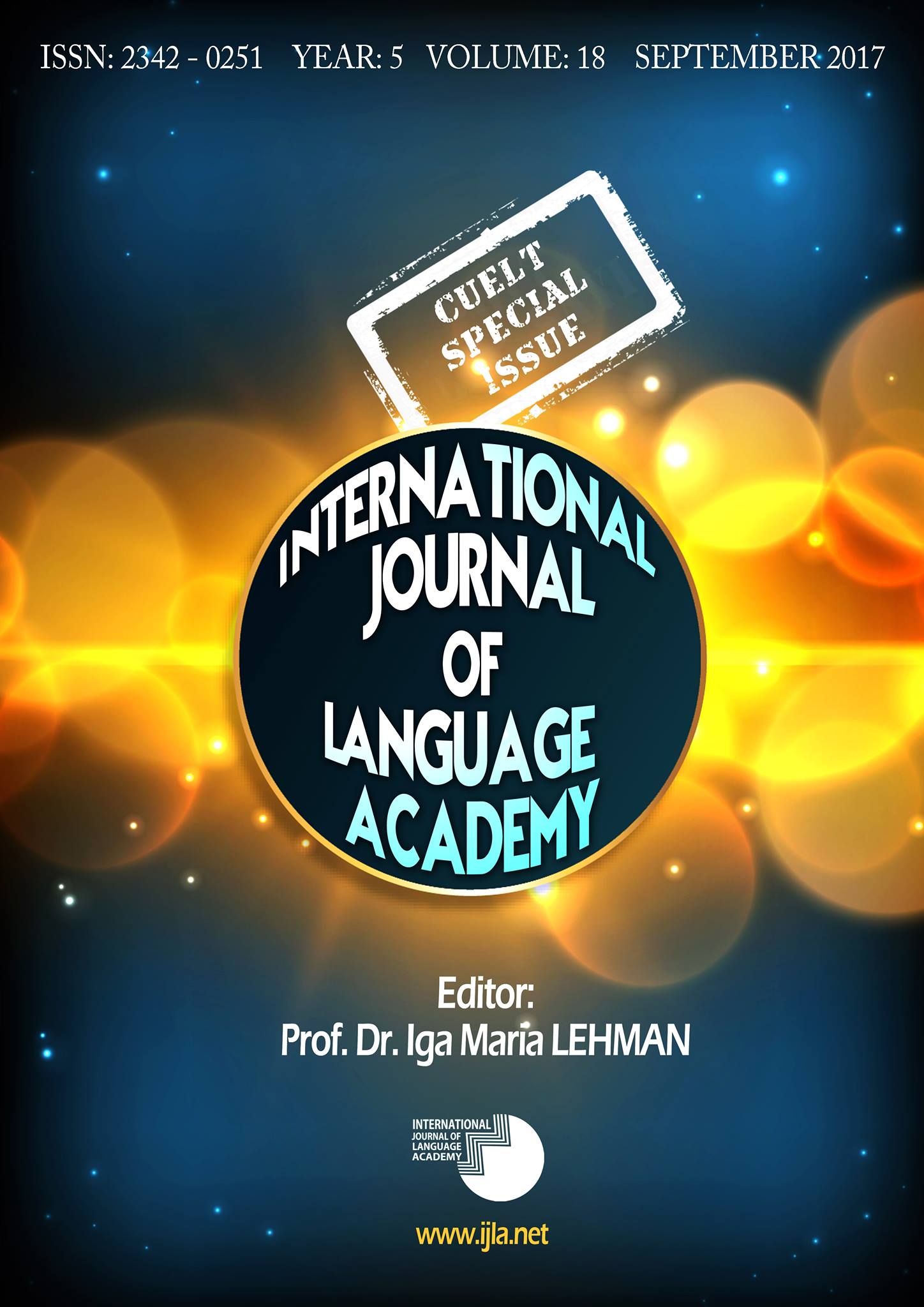Author :
Abstract
This article presents the results of a research study regarding the effects of teacher code-switching on EFL learners’ speaking skill. It was undertaken to see the relations of teacher code-switching to 1) the learners’ overall oral production success, 2) their psychological comfort, 3) fluency, 4) accuracy, 5) vocabulary choice, 6) pronunciation and 7) comprehending and conveying the messages in a speaking task. A quantitative research design was used to do so. The study was conducted with 24 A2-level EFL learners in a prep-class of a state university in Turkey. To collect the data, two similar tasks, which were independent from each other, were designed for the learners. During the first task, they were instructed and guided only in English by the teacher/researcher. For the second task, they were instructed with the help of occasional code-switching to their L1, Turkish, as a supplementary strategy. To evaluate their success in two tasks, a 6-point Likert scale was used. Then the grades of the participants were analyzed via paired-sample t-test to see whether there was a significant difference between their performances in the tasks. The results suggested that there were substantial increases in the scores of EFL students in the second task during which occasional code-switching was benefited from. They had much higher scores for their overall oral production, psychological comfort, fluency, vocabulary choice, and comprehending and conveying the messages. However, the study did not show any significant relationship between teacher code-switching and students’ accuracy and pronunciation in an oral activity.
Keywords
Abstract
This article presents the results of a research study regarding the effects of teacher code-switching on EFL learners’ speaking skill. It was undertaken to see the relations of teacher code-switching to 1) the learners’ overall oral production success, 2) their psychological comfort, 3) fluency, 4) accuracy, 5) vocabulary choice, 6) pronunciation and 7) comprehending and conveying the messages in a speaking task. A quantitative research design was used to do so. The study was conducted with 24 A2-level EFL learners in a prep-class of a state university in Turkey. To collect the data, two similar tasks, which were independent from each other, were designed for the learners. During the first task, they were instructed and guided only in English by the teacher/researcher. For the second task, they were instructed with the help of occasional code-switching to their L1, Turkish, as a supplementary strategy. To evaluate their success in two tasks, a 6-point Likert scale was used. Then the grades of the participants were analyzed via paired-sample t-test to see whether there was a significant difference between their performances in the tasks. The results suggested that there were substantial increases in the scores of EFL students in the second task during which occasional code-switching was benefited from. They had much higher scores for their overall oral production, psychological comfort, fluency, vocabulary choice, and comprehending and conveying the messages. However, the study did not show any significant relationship between teacher code-switching and students’ accuracy and pronunciation in an oral activity.





